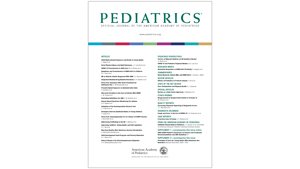What We're Reading
By Joy Burkhard, MBA
Founder and Executive Director, 2020 Mom
At the 2023 Maternal Mental Health FORUM we will dive into the relationship of infant mental health and maternal mental health. This issue of What We Are Reading includes several articles and studies which highlight this important relationship addressing the impact of untreated maternal mental health disorders on children. It’s my hope that infant mental health specialists will soon specialize in maternal mental health. Read more about this and other important issues below.
Don’t forget to leave a comment about any article that struck you.
MATERNAL MORTALITY / SUICIDE
Maternal Deaths Show 'Racism Does Exist Among Physicians'
Black women had a higher chance of dying at a hospital during childbirth, even when income and other social determinants of health were excluded.
988—The New Suicide-Prevention Hotline—Sees Big Increase in Use
Data for August 2022, the first full month following the launch of the new 988 number, showed a 45% rise in contact volume compared with August 2021.
Opinion: Maternal Mortality Rates Keep Getting Worse
Valuing the life of a baby while not protecting the mother is hypocritical. From postpartum depression to substance abuse, there are several issues …
TREATMENTS
Stop the Confusion and Rethink Names of Drug Types, Psychiatric Nurses Say
Patients don't get why they're prescribed stimulants for ADHD and anti-psychotics for anxiety.
The Chain Reaction of Postpartum Depression on the Family: How to Break the Cycle
Postpartum depression isn’t just a mother’s problem; it can affect the whole family if not treated.
New Drug Elicits an Antidepressant Effect in Mice in Just Two Hours
Chronic depression is one of the most common forms of mental illness, and medical scientists have been hard at work searching for a cure. Most drugs used to treat the condition are serotonin reuptake inhibitors that reduce depression by targeting serotonin transporters—they are generically known as SERT drugs. They work by upping the levels of serotonin in the brain. Unfortunately, such drugs can take many weeks to have an impact, and they can also have serious side-effects, such as increasing the risk of suicide. In this new effort, the researchers took a new approach—disassociating SERT and an enzyme called neuronal nitric oxide synthase (nNOS.)
Sage Therapeutics and Biogen Present Further Analyses from Phase 3 SKYLARK Study of Zuranolone in Postpartum Depression
Newly presented data offered additional insight into the SKYLARK Study and further demonstrated the rapid improvements in depressive symptoms observed in the clinical trial.
Zuranolone was generally well-tolerated, with a safety profile consistent with previous clinical trials; most treatment-emergent adverse events (TEAEs) were mild or moderate in severity.
COVERAGE & ACCESS
Paying for Mental Health Care Leaves Families in Debt and Isolated
Today Marcus is 15 and has a younger sibling. His parents have depleted their savings and gone into debt to pay for treatments for his severe depression, anxiety and mood disorders.
Maternity Care in the U.S. Is in Crisis. It’s Time to Call the Midwife
Maternal deaths and preterm births are far higher in the U.S. than in other similar countries. Relying more on midwives could close that gap.
RELATED
The Association of Maternal Child Health Professionals (AMCHP) Maternal Child Health Bridges Podcast Episode Queering Perinatal Mental Health
Leo Andreas (he/him) and Jenna "JB" Brown (they/he) join us to explore the unique perinatal mental health experiences of queer, trans, and gender non-conforming people. Leo, a dad of a two-year-old, shares his mental health experiences of his journey to parenthood. And JB, a full-spectrum doula and community educator, explains the positive impact person-centered, radically inclusive care can have on the mental health of queer, trans, and gender non-conforming people during the perinatal period.
Parents, Caregivers, Environments ‘Powerfully Shape’ Infant Mental Health
The concept of infant mental health, which is gaining prominence in Africa, is powerfully shaped by positive mental health outcomes of both infants and primary caregivers. For this reason, hearty experiences during infancy are critical to enabling the life-long mental health and well-being of toddlers, children and, ultimately, young adults.
RESEARCH
Inequities in Neonatal Mortality Are Wide Even With Assisted Reproduction, Study Finds
This is startling news of a different health disparity in births. Researchers set out to compare outcomes among people who conceived spontaneously, used assisted reproduction technologies like IVF, or used other types of fertility aids. Among 7 million single births, neonatal mortality rates were twice as high among spontaneously conceived children of Black women versus white women. But they were four times as high among infants of Black women conceived through technologies like IVF, according to a new study.
Maternal Postpartum Depressed Associated With Impaired Speech Development in Offspring
Infancy is an important period for language development and past studies have shown that postpartum depression in mothers can have a negative impact on language development in a child. This study sought to expand upon by literature by examining if depressed maternal mood at subclinical levels 2 months after birth was associated with infant speech perception trajectories from ages 2 to 6.5 months.
Associations Between Postpartum Pain, Mood, and Maternal–Infant Attachment and Parenting Outcomes
Pain and depression are interrelated, and worse postpartum pain has been associated with postpartum depression. It remains unclear whether improved pain and mood after delivery can also improve maternal parenting. Few studies have examined relationships between postpartum pain and negative mood (anxiety or depression) or their effects on parent–infant relationship outcomes. The purpose of this study was to explore the relationships between postpartum pain, mood, parent–infant attachment, parenting self-efficacy, and infant development.
Study Finds That Instagram Can Adversely Affect a Postpartum Mom’s Mental Health
A study published in Healthcare journal found that people who have just recently had a baby may be negatively affected by social media. Platforms like Instagram tend to glamorize parenthood and not depict a realistic view of the complexities that new parents experience, which can lead to dangerous comparisons and increase their risk of postpartum depression.
Traumatic Experiences Tied to Lower Estrogen Levels in Menopause
Less sleep also impacted sex hormones in postmenopausal women.

















